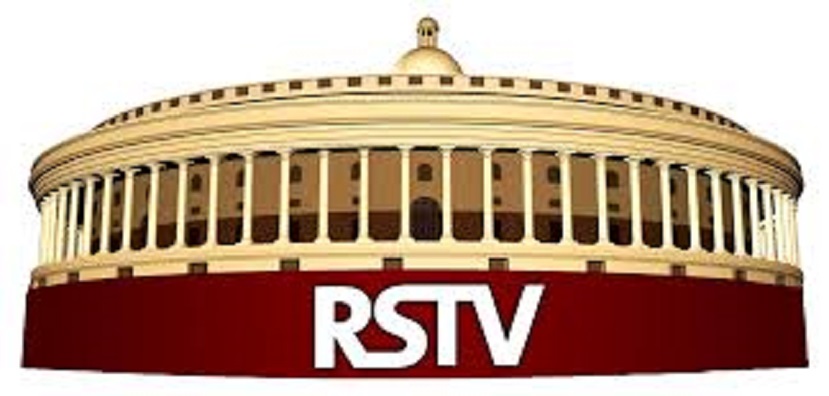New Delhi : A privilege motion has been moved by 60 MPs of 14 major parties in Rajya Sabha in a matter related to RSTV. This extraordinary step is bound to raise a debate on freedom of media and privileges of Parliament. We, in RSTV, have practiced the highest ethical and professional standards of unbiased journalism and find ourselves morally suited to address the debate. I thank you for patronizing the channel and being our partner in the endeavour.

But first, a news item in a newspaper that reads ‘The privilege motion against the two publications takes the debate further by suggesting that not just members of House but also employees of Parliament are covered by “privilege” and, hence, entitled to special treatment.’ Therein lies the sting. The motion nowhere refers to ‘privileges of employees of Parliament’ and nowhere demands special treatment for them!
So either the reporter has penned the news without reading the privilege motion or else has deliberately attempted to obfuscate the matter. It is this tendency that is at the core of debate on freedom of media.
What is this particular privilege about? It centres around two primary issues. The publications challenged had insinuated financial extravagance and irregularities in RSTV and questioned the relevance of a decision of Rajya Sabha to have its own TV channel, based on a non-existent CAG report. Besides, the publications neither ascertained the version of RSTV nor bothered to publish the facts that were officially put in the public domain.
This privilege motion will be fiercely contested and rightfully so. Media’s right to criticize anyone, more so the holy cows, needs to be protected. Who understands it better than us in RSTV, who have cherished and practiced it against all odds.
But any criticism must draw upon arguments that stand on their own legs. It cannot employ false facts and forged documents to further its point. Criticism has to be dialectical and not diabolical.
Criticism also cannot hide behind half-truths, in a la- Ashwatthama mode. Lets remember that one singular incident of half truth robbed the sheen off ‘Dharam Purush’ Yudhishthira. Media is supposed to act as the metaphorical ‘Dharam Purush’ in modern democracy. It has already lost its sheen to quite an extent in public eye, which is quite perceptive and discerning in hindsight.
What is freedom of media? Is it merely the right to inform and express views? In RSTV we don’t limit the definition to such a simplistic understanding. Freedom of media extends to providing platform to conflicting views, which at times can also seem baseless or illogical or against the current popular notions. It must provide space to ideas that can be conventional or futuristic, truthful or hypocritical, honest or motivated or even downright irreverent or insulting. But whenever it does so, it must either back it with insight based on facts or else, just limit itself to being a platform that gives space to conflicting views whenever they are available.
If media chooses to don the role of a judge, then it has to follow the principles of natural justice! It can not sit in judgement without doing full homework, without marshalling facts and satisfying itself with their authenticity and without granting everyone the right to be heard.
Media can also set an agenda, shape an agenda and lead an agenda, provided it is convinced of adhering to classical tools of journalism. All this is perfectly valid and desirable, too.
The freedom of media is its right, but like any other right it has to be safeguarded not just from external suppression but also from internal waywardness. The custodians of any independence have it incumbent upon themselves that independence does not infringe upon the intrinsic rights of others- individual rights, as well as, community rights. Or else, a stage might come when others challenge and dilute the independence.
Sadly, the media’s institutional watchdogs have largely been oblivious to the digression of media. There is little self-correction. Media has vociferously advocated for grievance redressal forums in social, judicial and governance areas. But the concept of grievance redressal is virtually non-existent in media forums. There seems to be a conspiracy of silence, reeking of professional nepotism.
Media has the honour of being the fourth pillar of democracy. But it is the only pillar that has commercial interests. There is an inherent contradiction between commerce and larger public good. Besides, there are also internal contradictions along political and ideological lines within media. These contradictions are irresolvable. A balancing act can only be performed by strong public sector media or media owned through social contract of journalists. The possibility of latter is remote. In RSTV, we are attempting to develop into strong and ethical public broadcaster.
We have always practiced media freedom and stand staunchly in favour of it. But media freedom cannot be selective, defamatory and without effective grievance redressal. Let this privilege motion reopen the debate. The country is passing through a redefining phase of media- technologically, ethically, commercially and purpose-wise. Parliamentary Committee may soon be seized of the matter. Let us in media also debate it internally, in the larger interest of nation and media itself.
Gurdeep Singh Sappal CEO & Editor-in-Chief Rajya Sabha Television.
